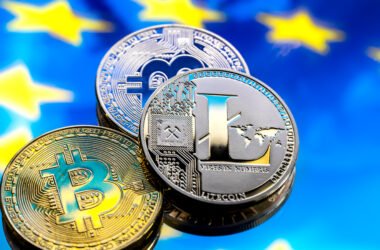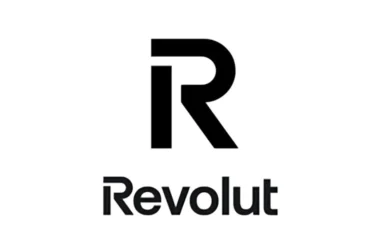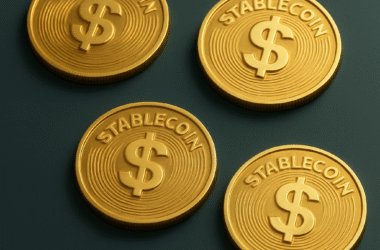In a world of AI and space tourism, why are we still filling forms and chasing rubber stamps? But what if we could finally ditch the admin grind? That’s not some far-off fantasy. It’s starting to happen, thanks to blockchain. This technology is quietly but steadily changing the way businesses operate, cutting out middlemen, adding trust, and simplifying the paperwork and verification that usually slows us down. Malta has gone big on blockchain, turning it into a national focus and a testing ground for what’s possible.
We’ll start with the basics — what blockchain is and how it works — then take a closer look at Malta, where it’s already making a real difference. Think food traceability, secure health data, less paperwork, and smoother everyday processes.
The Secure Digital Ledger Explained

To really get what makes blockchain powerful, it helps to understand how it works at the core. Think of it as a digital ledger — like a shared notebook — that’s open for everyone to see but locked so no one can erase or change past entries.
Each “block” is a bundle of transactions, checked and confirmed by the network. Once it’s full, it gets a unique digital signature called a cryptographic hash, kind of like a fingerprint. That fingerprint also connects it to the previous block, linking them together in a continuous, tamper-proof chain.
That’s where the name comes from: block + chain. And it’s this clever structure that makes blockchain so trustworthy : everything is recorded, linked, and locked into history.
The Strength of Decentralisation
What really sets blockchain apart is that no single person or organisation controls it. Unlike traditional systems — where a bank, government office, or company keeps the official records — blockchain is decentralised. Everyone in the network holds the same version of the ledger.
When someone wants to add a new block of transactions, it has to be approved by the majority. This shared validation makes it incredibly hard to cheat. If someone tried to change an old entry on their own copy, the rest of the network would immediately spot the mismatch.
That built-in trust is what gives blockchain its edge. The records are open, verifiable, and very hard to tamper with, which makes it ideal for industries where accuracy matters.
From tracking goods in a supply chain and managing digital IDs, to simplifying payments or protecting intellectual property, blockchain cuts out middlemen and makes systems more secure and efficient. It doesn’t just store information — it makes sure that information can be trusted.
Malta’s Leading the Charge

Malta has rapidly emerged as a global leader in blockchain adoption, showcasing its practical value across multiple sectors. This nation isn’t just embracing the technology; it’s actively integrating it into its national infrastructure and regulatory framework, setting a precedent for digital innovation.
0% Tax on Crypto?
When you sign up, you’ll receive a 5-part email series packed with insights on Malta’s crypto landscape : from tax rules and residency options to practical tips for investors. Learn how to make the most of your crypto journey in Malta, step by step.
Certifying Education on the Blockchain
One of the most compelling demonstrations of Malta’s commitment is its pioneering initiative in certifying academic degrees on the blockchain. Imagine applying for a job: instead of the lengthy process of retrieving dusty old diplomas or waiting weeks for verification from your university, you simply share a digital credential. This blockchain-verified credential is instantly verifiable and tamper-proof, transforming a cumbersome process into a seamless one. Back in 2019, Malta became the first country globally to roll out this system, a collaboration that has since expanded to encompass all public and private schools nationwide. This isn’t just about unprecedented convenience; it’s a powerful stride towards eliminating credential fraud, significantly speeding up hiring processes, and empowering individuals with genuine, self-sovereign ownership of their educational achievements. Think of the immense administrative burden lifted from both educational institutions and employers alike.
Contributing to European Digital Infrastructure
Beyond academia, Malta’s commitment is evident in its active participation in the European Blockchain Services Infrastructure (EBSI) network. The Malta Digital Innovation Authority (MDIA) now operates a node within this pan-European network. In plain terms, this means Malta is directly contributing to building a secure, resilient, and decentralized infrastructure for cross-border public services across the EU. This facilitates everything from verifying professional licenses to exchanging trusted data between member states, cutting down on red tape and enhancing efficiency across the continent.
Streamlining Business and Attracting Innovation
Malta’s ambition extends to reforming government services and fostering a robust blockchain ecosystem. They believe that a government should stand by what it certifies and sells, a philosophy evident in their rigorous approach to licensing blockchain-related businesses. The Malta Business Registry (MBR), for instance, has embraced blockchain technology, aiming to become paperless in a few years and leveraging the tech for enhanced transparency and a digital audit trail. They’ve even launched a new online platform, based on blockchain, that allows companies to be incorporated within 24 hours if all necessary information is provided, drastically speeding up business setup.
Crucially, Malta has been incredibly selective about who it accepts and licenses within its “Blockchain Island” ecosystem. They’ve established a robust regulatory framework, like the Virtual Financial Assets Act, to ensure that only legitimate and compliant companies operate from their shores. This isn’t a free-for-all; it’s a carefully cultivated environment designed to attract serious players committed to long-term growth and compliance. This strict vetting process, often involving “fit and proper” tests for key personnel and significant capital requirements, has attracted some big names in the crypto and blockchain space. Companies like OKX and Crypto.com have secured licenses in Malta, allowing them to expand services across the EU under the new MiCA framework, and even giants like Gemini have made moves towards establishing a presence, recognizing the strength of Malta’s regulatory clarity and pro-innovation stance.
Real-World Blockchain’s Efficiencies
The impact of blockchain isn’t limited to digital documents or business registrations. It’s revolutionizing diverse sectors, making processes more efficient and data more reliable. offering revolutionary solutions in critical sectors like healthcare and supply chain management.

Revolutionising Healthcare Data Management
Consider the complexities of securely sharing a patient’s medical history. Imagine trying to coordinate care between different hospitals, clinics, and specialists, especially if a patient is traveling or requires urgent care abroad. Traditional systems are often fragmented, vulnerable to data breaches, and cumbersome to navigate.
Blockchain offers a groundbreaking solution. Patients could gain unprecedented control over their encrypted health records, selectively granting permission to specific providers for limited durations. This means faster, more accurate diagnoses, reduced duplicated testing, and ultimately, better patient outcomes. The inherent security and immutability of blockchain ensure that sensitive medical information remains private yet accessible precisely when needed, truly streamlining a critical aspect of human well-being.
Enhancing Supply Chain Transparency
From farm to fork, knowing the exact origin and journey of a product is paramount for consumers and businesses alike. Blockchain provides that immutable audit trail, instantly. Companies like Walmart and Nestlé have already adopted blockchain to revolutionize their supply chains.
Imagine scanning a QR code on a loaf of bread and instantly seeing its complete journey:
- 🌾 Grown: Wardija Hills, Malta
- 📅 Sown: 12 Nov | Harvested: 3 May, 05:58 ⏱️
- 🌀 Milled: Tal-Qadi Mill, Naxxar
- 🧂 Additives: None | 🌾 Method: Cold stone-milled
- 🚚 Transport: Refrigerated van (5–7 °C)
- 📍 Delivered: Same day to Valletta bakery 🥖
- 🗺️ Trackable. Local. Honest. From Maltese soil to the flour in your sourdough.
If a food safety concern arises—like a contaminated batch of flour, instead of a widespread, wasteful recall, companies can pinpoint the exact origin in seconds. Walmart famously reduced the time to trace sliced mangoes from seven days to a mere 2.2 seconds using blockchain! This unparalleled level of transparency not only builds immense consumer trust but also drastically reduces waste and operational costs.
Transforming the Shipping: From Paper Trails to Digital Trust

Let’s conclude with a real-world titan of bureaucracy: international shipping. This is an industry where a single shipment can generate hundreds of pieces of paper, like invoices, packing lists, and customs declarations. But the most critical document of all is the Bill of Lading. This isn’t just a receipt; it’s a critical legal document proving ownership of the cargo, acting as a contract for carriage, and even serving as a document of title.
The Paper Problem
From the carrier to the banks and finally to the receiver, every step in the shipping process depends on paperwork , especially the Bill of Lading. But what happens when that paper doesn’t arrive on time?
Imagine this: a cargo ship is delayed by rough weather, or your container reaches port — but the paper Bill of Lading is stuck elsewhere, maybe delayed in transit or tangled in some administrative mess. The result? A logistical nightmare.
Cargo held hostage – Your goods might be sitting at the port, incurring storage fees by the hour, simply because the right piece of paper isn’t there to release them. I’ve been through this myself — it’s maddening.
Claims become chaos – If cargo is damaged or spoiled, trying to prove what happened, when, and who’s responsible can take weeks. The paper trail is slow, unreliable, and often leads to disputes and delayed compensation.
Errors and fraud – With so much manual processing, mistakes are common — and so is the risk of forged or tampered documents.
Blockchain to the Rescue!
This is where blockchain steps in and changes the game. Imagine a Bill of Lading that exists digitally on a secure, shared ledger. The moment a container is loaded, the document is issued and permanently recorded. From there, every step — departures, port stops, customs clearance, even temperature data from smart sensors inside a refrigerated container — is tracked in real time.
No more paper delays – The digital Bill of Lading can be instantly accessed and verified from anywhere. Customs can review it before the ship even arrives, speeding up clearance and reducing delays.
Clear, fast claims – With a detailed, tamper-proof record of the entire journey, claims become easier to prove. If goods are damaged or exposed to extreme conditions, there’s no argument — it’s all right there. Disputes shrink, and payouts move faster.
Trust by design – Because the data can’t be faked or altered, everyone in the supply chain can rely on it. That trust leads to smoother, faster, and more cost-effective trade.
We’re not talking theory. Platforms like Maersk’s TradeLens, developed with IBM, have already shown what’s possible — slashing document handling times and cutting admin costs across global shipping. This isn’t just an upgrade. It’s a shift in how trade works.
Brave New World

Here’s the reality: blockchain is starting to bring real efficiency to tasks that used to eat up time and energy — from paperwork and background checks to endless reconciliation.Before jumping to visions of robots replacing office workers, let’s pause. Yes, some jobs will evolve or fade. But this isn’t the end of human involvement — it’s a shift in what that involvement looks like. Rather than replacing people, this is about freeing them up to do more valuable work.
Beyond the Spreadsheet
Instead of spending hours chasing documents or comparing spreadsheets, tomorrow’s admin professionals will manage blockchain tools, spot inefficiencies, and help build automated systems. Their focus will move to higher-level tasks: critical thinking, creative problem-solving, strategic planning. In short, the stuff only people can do well.
To get there, though, we’ll need serious investment in skills — from digital literacy to smart contract basics. It’s not just about learning new tools; it’s about embracing a new mindset.
Across sectors — finance, law, government — blockchain is already reshaping how we work and build trust. It’s a chance to let go of the busywork and focus on what people do best — thinking, creating, and making decisions that matter.







